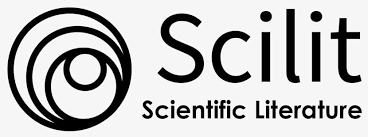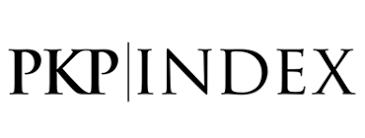Publication Ethics and Malpractice Statements
Ayumi Journal Publication Ethics
Author’s Duties
- Reporting Standard: The author must present an original manuscript and the results of an objective discussion. The author must also present the results of his writing without falsification or manipulation of unethical data. A manuscript must contain references that are detailed and sufficient to allow the author to further reference or make reference to the work. False or intentionally inaccurate statements are unethical and unacceptable attitudes. Authors are also required to follow journal writing guidelines.
- Originality and Plagiarism: Authors must ensure that the work written is their original original work. Manuscripts may not be sent simultaneously to more than one publication. Previously relevant works and publications must be recognized and referred accordingly by the author, as well as the author's own work in previous publications. Primary sources must be cited if necessary. Original quotations and in accordance with the research discussed, are quoted directly by the authors of previous publications by marking them with quotation marks.
- Multiple or Simultaneous Publications: In general, writers may not submit the exact same manuscript to more than one journal at a time. Authors also may not publish manuscripts that describe the same research in more than one journal. Submitting such texts until the manuscript is published is an unethical and unacceptable publishing behavior.
- Recognition of Sources: Authors must describe the source of the data used in research. When quoting other people's publications, the author is obliged to state the author's name in the written text and in the bibliography and his work. Proper acknowledgment of the work of others must always be given and stated. The importance of referring and including previous publications in the bibliography as a reference from further research the author can negate the assumption of the same or the same research.
- Authorship: Writing research must describe the contribution of individuals in reporting. Others who have also contributed to the concept, implementation and interpretation of the research can be written as joint authors. The author also ensures that all authors have agreed on the substance of the manuscript sent and the order in which their names are co-authored.
- Disclosure and Conflicts of Interest: Before submitting publications, all authors have not addressed pre-publishing financial issues such as research costs as both single authors and joint authors, and post-publishing issues or other matters that can be considered to affect the results of writing and publishing joint manuscripts.
- Fundamental Mistakes in Published Works: if the writer finds significant errors or inaccuracies in the published manuscript, the writer must immediately report to the journal editor. The journal editor then reports to the publisher to correct the article and republish it.
Editor's Duties
- Publication Decision: The editor can accept, reject, or request to revise the manuscript sent according to the writing instructions. Validation of works can be done and encouraged by mutual coordination between writers and editors, as well as editors and reviewers. The editors are guided by the policy and integrity of journal publication procedures in carrying out their duties and adhering to legal provisions relating to defamation, copyright infringement, and plagiarism. Journal editors are also responsible for the weight and quality of all published manuscripts.
- Manuscript Review: The editor ensures that each manuscript is initially evaluated by him so that the originality of the author's work is known. The editor must be able to regulate the process of circulating the manuscript continuously, fairly and wisely to writers and reviewers. The editor must also be able to explain the information to the author which part of the contents of the manuscript is reviewed by the reviewer. The editor must choose reviewers who fit the theme of the manuscript to be reviewed and which will be published later.
- Fair Play: Editor ensures that every manuscript received must be reviewed the weight of the substance of the manuscript and review the relevance of the substance whether in accordance with the title written by the author or not, without distinguishing the gender, race, religion, citizenship, and so on from the author. An important part of the editor's responsibility to make fair and impartial decisions is adherence to the principles of independence and editorial integrity. The editor has a strong integrity to make decisions about the feasibility of publishing the manuscript after receiving recommendations from reviewers who have reviewed the manuscript.
- Confidentiality: The editor must guarantee the confidentiality of the manuscript information sent by the author. The editor must actively monitor that the data used by the author in his research is not used by other authors who are both submitting texts in the same publication.
- Disclosure and Conflict of Interests: Journal editors guarantee that they will not use or insert other materials into the author's manuscript, or cite the author's material for inclusion in the editor's own research but through written approval from the author.
Reviewer's Duties
- Confidentiality: Information about manuscripts sent by the author through an editor must be kept confidential and treated by reviewers as scientific information that is worth reviewing. Authors' writings may not be shown or discussed with others unless authorized by the editor.
- Recognition of Sources: Reviewers must ensure and confirm to the editor that the author has acknowledged all sources of data used in the study. Every statement in the form of observations, arguments and suggestions for the use of new words by reviewers in the reviewed text must be reported in as much detail as possible and if necessary supported by relevant citations. On the other hand, the reviewer must immediately notify the editor if in the manuscript found irregularities, or found the similarity of substance between the manuscripts being reviewed with other writers' research manuscripts in other journals or manuscripts that have been published, or a strong assumption of violation of the writing of the research manuscript known by the reviewer during the research or writing period to the submission of the manuscript. However, the reviewer is still obliged to maintain the confidentiality of the author's problem and not personally investigate further, unless the journal manager requests further information or advice.
- Objectivity Standard: Reviewers must express their views and comments clearly and objectively with the support of arguments when reviewing the author's text. Reviewers must be constructive in their reviews and provide feedback that will help writers to revise their manuscripts. The reviewer can also suggest additional investigations into the research the author has done so that the results of the published manuscript are more accurate. Of course, before this suggestion, the reviewer must ask the editor for his opinion regarding the time period needed for this manuscript to be published according to schedule.
- Disclosure and Conflict of Interests: Manuscript information obtained through an editor for review must be kept confidential and must not be used for the personal interests of the reviewer. Reviewers may not choose the manuscript due to personal or personal motives arising from competition, other connections with the author or any institutional relationship connected with the manuscript.
- Accuracy: Reviewers must respond to the manuscript reviewed in a reasonable time schedule and not too long. Reviewers only agree to review the manuscript if they are able to return the review within the timeframe specified by the organizer of the journal or agreed upon between the journal editor and reviewer. In addition, the reviewer also has the right to inform the fate or condition of the reviewed manuscript requiring an extension of review if necessary. If the reviewer feels unable to complete the review of the manuscript within the allotted time, then the manuscript that has been reviewed is communicated and returned to the editor, so that it can be sent and reviewed by other reviewers.

1.jpg)


















